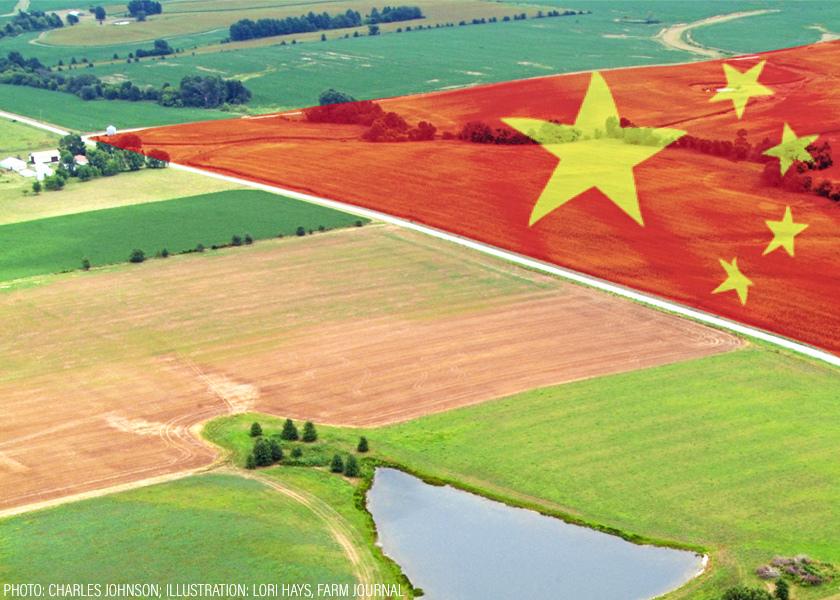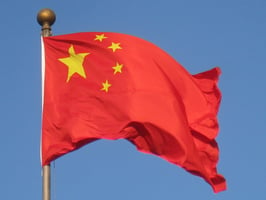China's total arable land amounted to almost 1.28 million sq km (490,000 sq miles) by the end of...
‘China’s Farmland Is in Serious Trouble’

This is the title of an analysis item by Zongyuan Zoe Liu, a columnist at Foreign Policy and a fellow for international political economy at the Council on Foreign Relations. Liu wrote, “The leaders of the Chinese Communist Party (CCP) understand that ‘to the emperor, the people is heaven; to the people, food is heaven,’ as the traditional saying goes, and they have prioritized food security as a prerequisite to maintaining power, especially after the calamitous famines of the Maoist era. For decades, coupons were necessary to buy any food - a system not fully ended until 1995, although largely dead in the cities by the mid-1980s. Despite China’s emergence as the world’s factory, the country’s No. 1 central document, the first policy statement issued by the top authorities each year, has centered on food security and the three issues of agriculture, the countryside, and farmers since 2004. This year is no exception, as the Central Committee of the CCP and the State Council jointly released the highly anticipated No. 1 document for 2023 on February 13. The document, which carries enormous weight, sets forth two critical priorities: safeguarding national food security and protecting farmland. While previous No.1 documents touched on these issues between 2004 and 2012, it was not until 2013, when Xi Jinping assumed leadership, that the annual No. 1 document established a consistent and resolute focus on food security and farmland preservation.”
Liu continued, “Xi is correct to recognize that preserving farmland is an indispensable factor in the quest to achieve food self-sufficiency. China has experienced alarming levels of farmland loss and deterioration in recent years. The most recent land use survey showed that China’s total arable land decreased from 334 million acres in 2013 to 316 million acres in 2019, a loss of more than 5 percent in just six years. Shockingly, more than one-third of China’s remaining arable land (660 million mu, a traditional unit of land measurement in China and equal to roughly 109 million acres, slightly larger than Montana) suffers from problems of degradation, acidification, and salinization. The land has been eroding faster in recent years. The annual net decrease of arable land has risen from about 6 million mu (about 988,421 acres) from 1957 to 1996 to more than 11 million mu (about 1.8 million acres) from 2009 to 2019. This means that between 2009 and 2019, China lost farmland equal to about the size of South Carolina.”
She concluded, “If China’s economic recovery and its continued growth are fueled by land sales and its property market, Xi’s prioritization of food security means Chinese entities will have to embark on more aggressive overseas land purchases. While the current theater of U.S./China competition has been centered on the chips and semiconductors industry, a new front may emerge in the form of competition over farmland and agriculture technology. The party can survive setbacks in the chip war, but the stakes are much higher in the fight for food security. Failure on the food security front will threaten the survival of the regime.”
EDITOR’S TAKE:
This article provides both insight and a reminder of what China’s biggest limitation is about – the ability to feed their population. China did not have enough adequate arable land in the first place, and to see that number decreasing is not a good sign for the CCP. The offset is that China’s population is also decreasing, but the food demands are still outstripping their ability to be self-sufficient. So, if you ever wondered why China is on the prowl for farmland in the U.S., Australia or even Africa, this article provides some excellent insight.
Your AIR Editor has traveled to China on several occasions and had an opportunity to view their food production from farm to consumer. The challenge of feeding their population goes much deeper than simply farm level production. The transportation, storage, processing and other infrastructure needed to effectively serve a population of that magnitude, is not up to the task. These types of facts are what makes China such a force to be reckoned with. The people in power want to maintain control and they need to keep people relatively happy and well-fed. That is the challenge. It is also why China is such a huge customer for U.S. agricultural products!








